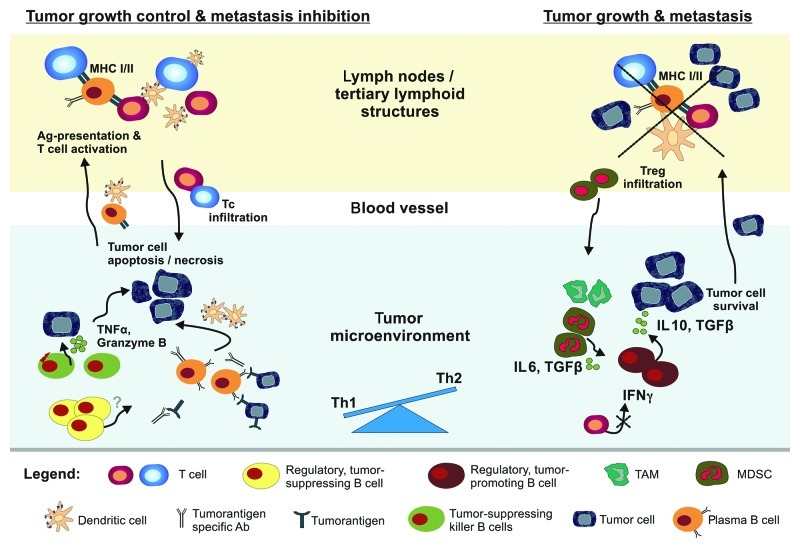Figure 1. Potential interactions of tumor-infiltrating B cells (TiBcs) with cancer and immune cells. TiBc may either inhibit or promote tumor growth. Tumor-infiltrating plasma cells secrete specific antibodies that favor opsonisation, complement-mediated lysis, or antibody-dependent cellular cytotoxicity. Tumor-suppressing killer B cells have the capacity to directly eliminate tumor cells via lytic proteins (i.e., TNFα, granzyme B). A subset of regulatory B cells exerts tumor-suppressive capacity by secretion of unknown (but most likely proinflammatory and T cell stimulatory) factors. TiBcs take up antigens, migrate to sentinel lymph nodes and present processed antigens to T cells. Activated and expanded antitumoral T cells subsequently infiltrate the tumor. Contrary, a suppressive subset of regulatory B cells may support tumor growth and metastasis by IL-10 and TGFβ production. This favors Th2 and inhibits Th1 immune responses (in particular the secretion of IFNγ). As a consequence, Tregs and other immunosuppressive cell populations (TAM, MDSC) are recruited to the tumor. This generally inhibits proinflammatory anti-tumor T cells.

An official website of the United States government
Here's how you know
Official websites use .gov
A
.gov website belongs to an official
government organization in the United States.
Secure .gov websites use HTTPS
A lock (
) or https:// means you've safely
connected to the .gov website. Share sensitive
information only on official, secure websites.
